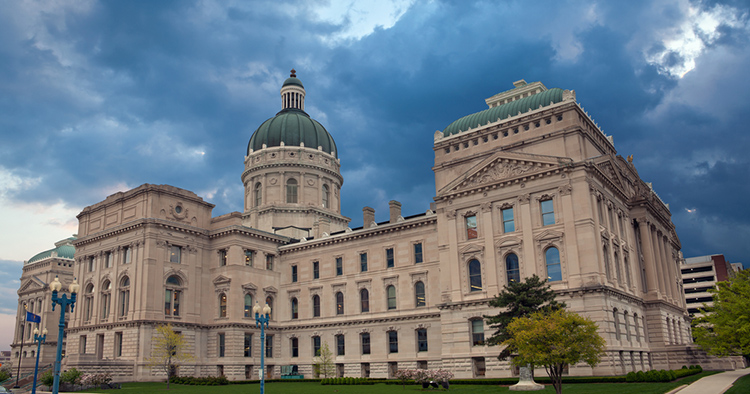To address lawyer shortage, Indiana could fund scholarships, approve allied professionals, commission says

Indiana could help address an attorney shortage in underserved communities through law student scholarships and loan-repayment assistance, according to initial recommendations by the Indiana Supreme Court’s Commission on Indiana’s Legal Future. (Photo by Rudy Balasko/Shutterstock)
Indiana could help address an attorney shortage in underserved communities through law student scholarships and loan-repayment assistance, according to initial recommendations by the Indiana Supreme Court’s Commission on Indiana’s Legal Future.
Other recommendations include “opening the doors of legal representation” to allied legal professionals and funding a regulatory sandbox program “to provide a venue for creative legal regulatory innovation,” according to the commission’s interim July 30 report. Comments can be submitted until Sept. 13 at noon.
“Indiana’s attorney shortage is real and rapidly approaching a critical point,” the report said. “According to the American Bar Association, our state ranks in the bottom 10 nationally with only 2.3 attorneys per 1,000 residents. Over half of our counties have fewer than one lawyer per 1,000 residents—the ABA’s threshold for a legal desert.”
The Indiana Supreme Court appointed the commission to explore ways to address the attorney shortage and directed it to make a first round of recommendations involving legislative changes or funding requests by Aug. 1.
According to proposals in the report:
• The scholarships would be for incoming law students receiving an Indiana-based legal education at law schools in the state. Eligible students would have to commit to practicing in public service for a period of years. Initially, the scholarship could target students willing to work as prosecutors or public defenders—which are high-need fields that often carry lower salaries.
• Loan-repayment assistance could be offered for lawyers practicing in legal deserts, modeled on medical loan-repayment stipends for health professionals working in shortage areas.
• Allied legal professionals could be allowed to provide limited legal services by amending the ban on unauthorized law practice. They could also be allowed to participate as mediators in small-claims cases with proper training.
• The regulatory sandbox program could be modeled after Utah’s Office of Legal Services Innovation, which is an agency of the state supreme court. The agency can test initiatives for nontraditional services that might otherwise be considered unauthorized practice of law, such as providers with nonlawyer owners.
Other proposals call for funding startup costs for lawyers establishing offices in legal deserts and for nonprofit law firms serving middle-income clients, funding legal incubators that teach business skills to new lawyers, supplementing legal aid funding, and loosening the reciprocal admission rule.
Hat tip to WFYI, which covered the report.



